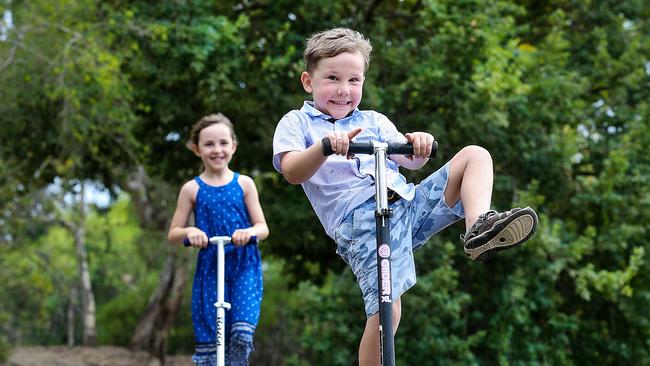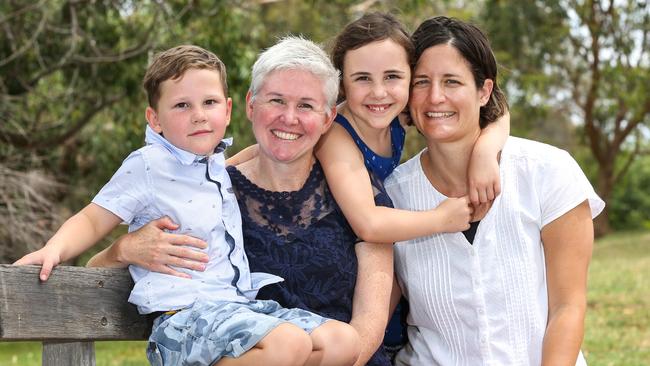Building resilience in children early helps prevent mental illness as adults
PARENTS should lose the kid gloves with their young children by letting them lose games and pick themselves up after a fall, according to new research. This is why.
VIC News
Don't miss out on the headlines from VIC News. Followed categories will be added to My News.
KIDS who are exposed to safe challenges in their early years are more likely to be mentally resilient in later life, according to new research.
Mental health organisation beyondblue has found children who talk about their feelings, learn to think positively, and those who are confronted with failure at a young age are better equipped to deal with challenges as they grow.
PARENTS SLACKING ON PHONE RULES FOR KIDS
WALKING TO SCHOOL NOT POPULAR WITH AUSTRALIAN FAMILIES
FATHERS WHO READ TO THEIR KIDS HELP IMPROVE SKILLS
Beyondblue CEO Georgie Harman said parents who wrapped their kids in “too much cotton wool” denied them valuable learning experiences that enabled them to develop mental resilience.
“Parents need to provide their kids safe, healthy challenges ... remove the training wheels and let them ride,” she said.

TRICKS TO BEAT BACK-TO-SCHOOL CASH CRUNCH
“Let them lose at a board game so they can learn how to lose.
“When they fall, let them pick themselves up. And teach them how to think positively.”
Beyondblue has launched a new web-based tool kit for parents and professionals that provides scenarios and phrases to help boost mental resilience in children under the age of 12.
Ms Harman said half of all lifetime mental health issues emerged by the age of 14, yet most of the existing research about resilience focused on developing the skill during adolescence.
“Experts agree that increasing resilience among children aged zero to 12 could potentially prevent mental health issues during childhood and later life,” she said.

The online kit encourages kids to talk about their feelings so they can understand and regulate their thoughts as well as take on challenges to build independence and problem-solving skills.
It also promotes healthy thinking habits and the building of close relationships with family and friends to forge self-esteem at a young age.
Mel Davies said her kids, Matilda, 7, and Noah, 5, had each faced challenges that had given them the strength to adapt to change.
“My daughter has moved schools from Canberra to Melbourne and my son has type 1 diabetes,” she said.
“They seem to take everything in their stride.”
Ms Davies credits her children’s positive thinking to having open discussions at home and encouraging her kids to express their feelings and think independently.
TIPS FOR PARENTS
- Encourage children to discuss their feelings.
- Support independence by setting simple challenges.
- Build closeness with family and friends.
- Promote healthy thinking habits.
- Model calm and rational problem-solving.
- Encourage children to experience failure rather than protect them from it.
The Building Resilience in Children Aged 0-12 guide can be accessed at beyondblue.org.au/resilience-guide


